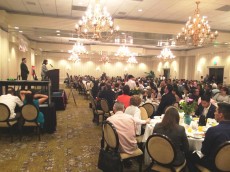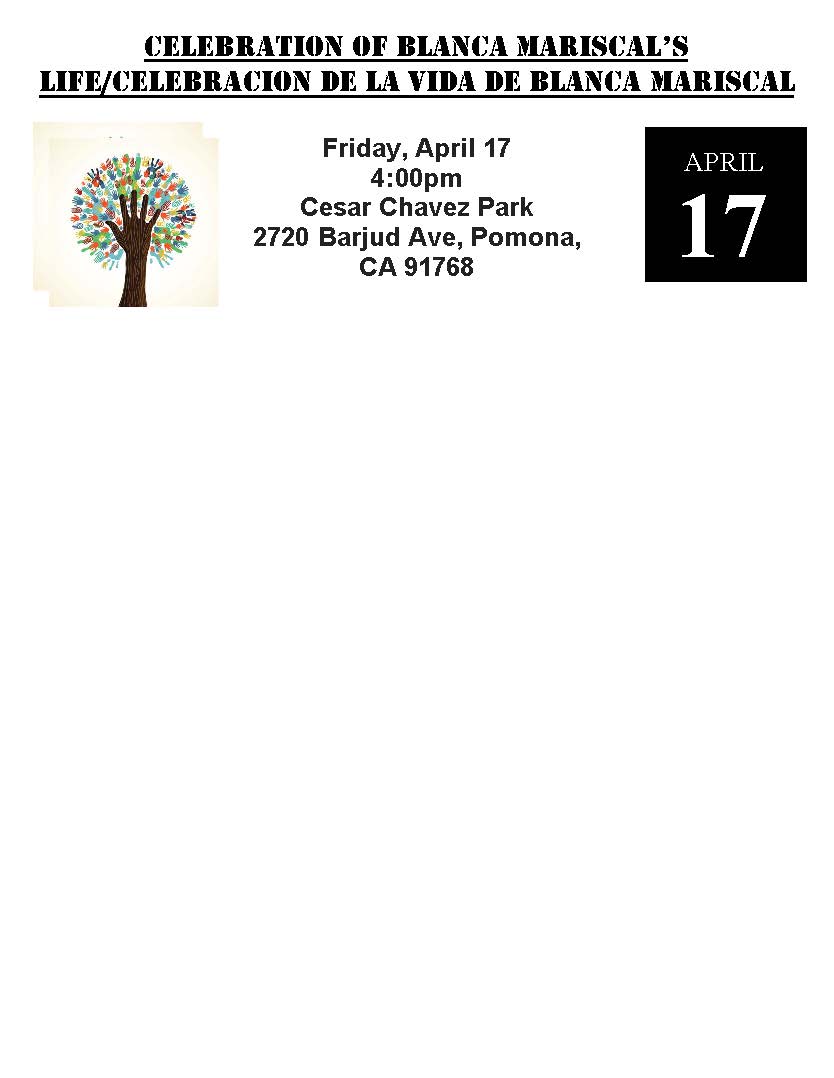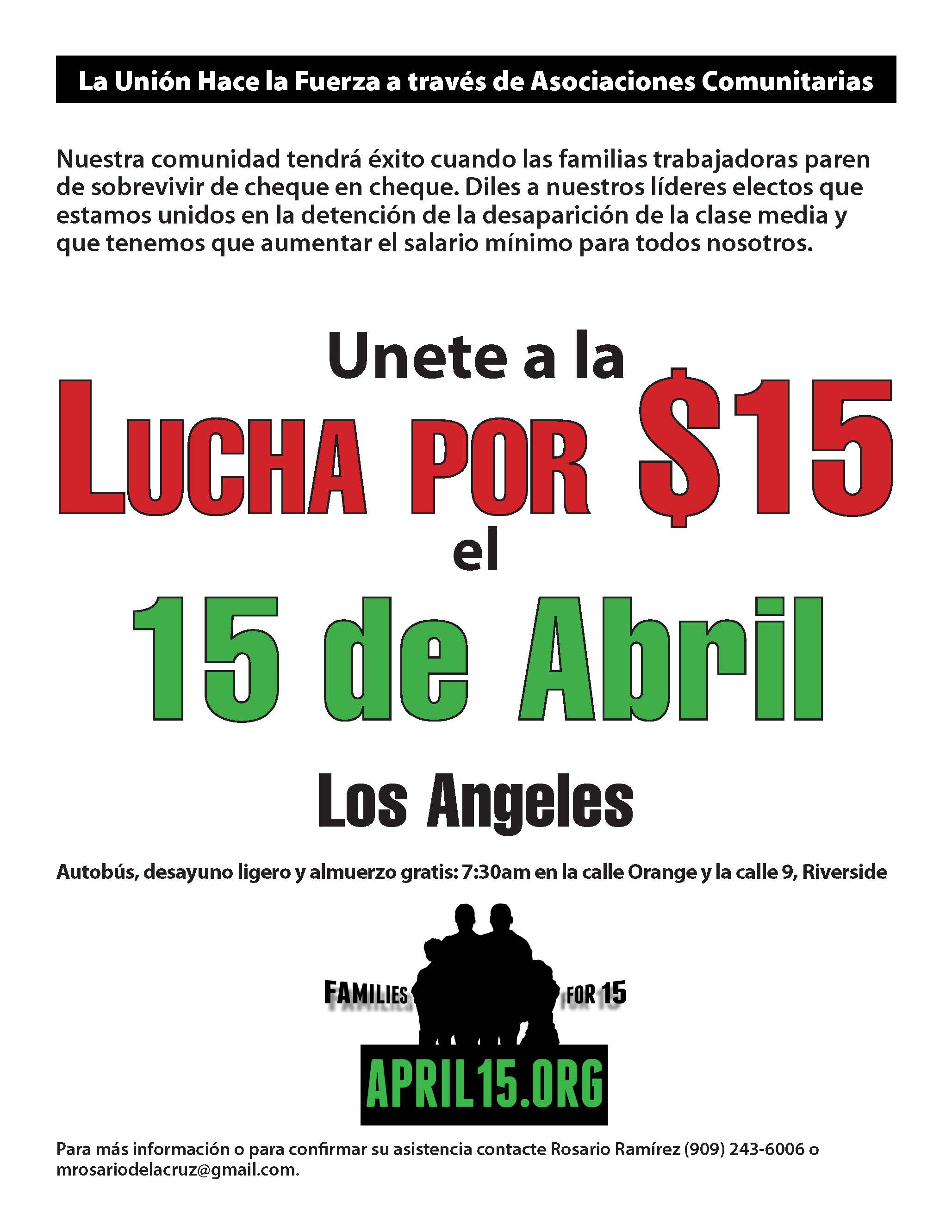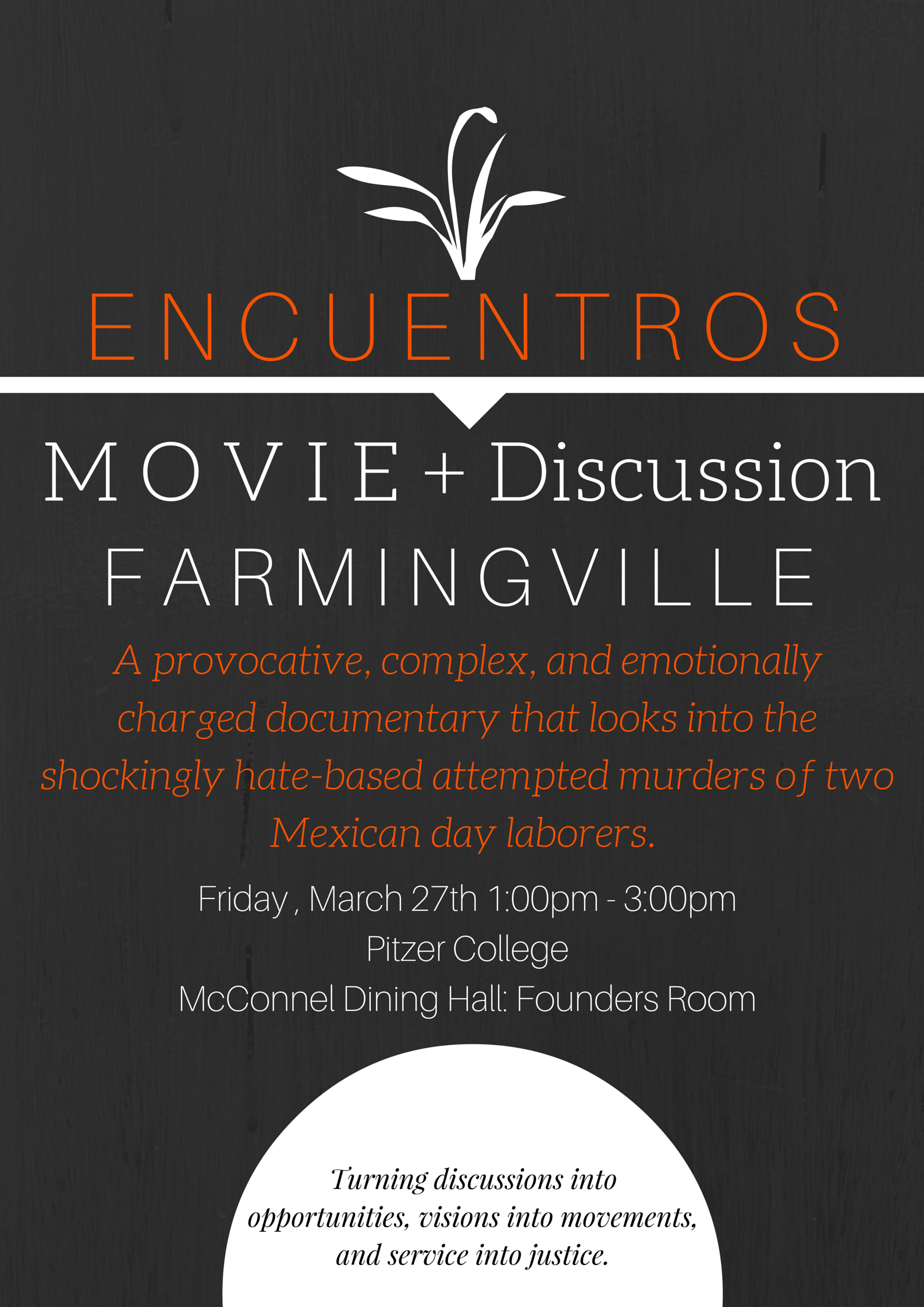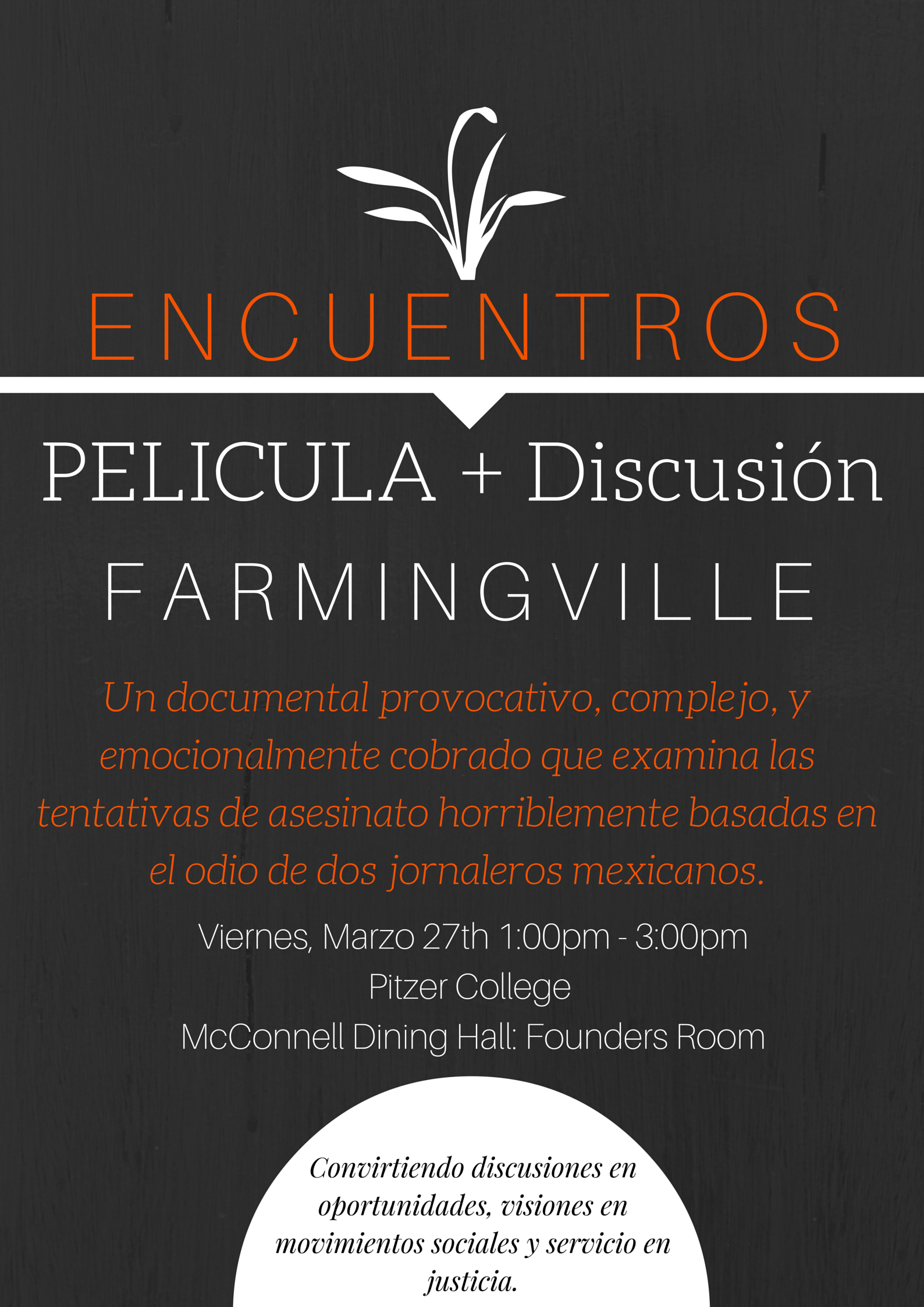http://www.unidossc.com/articles/cruz-20489-ch225vez-pomona.html
POMONA: Dirigentes locales reciben reconocimiento durante desayuno en honor a César Chávez
marzo 30, 2015 02:20 PM
Comparte| Imprime | Envía
OLGA ROJAS
orojas@pe.com
Video goes here
POMONA – Más de 400 personas asistieron al desayuno que organizó Latino and Latina Roundtable del Valle de San Gabriel y Pomona y el Concejo para el Avance Latinoamericano, en honor al líder de los trabajadores del campo, César Chávez.
Tradicionalmente por 11 años se ha estado realizando este evento, en el cual se honra a personas de la región que hayan demostrado poseer los principios y prácticas de César Chávez.
El viernes, 27 de marzo los homenajeados fueron la familia De La Cruz. La difunta abuela Jessie De La Cruz, fue miembro del sindicato de trabajadores del campo en sus inicios y ayudó a reclutar miembros y a organizar huelgas.
Su hijo, Roberto de la Cruz, ex vicepresidente del sindicato de los trabajadores del campo, hoy día se desempeña como representante internacional del Sindicato Internacional de Empleados de Servicios (SEIU, por su sigla en inglés) y el nieto, Arnulfo de la Cruz, quien trabajó como director estatal de Mi Familia Vota y ahora es director nacional del SEIU.
“Es un orgullo agarrar este reconocimiento para mi madre. Ella comenzó a organizar trabajadores entre 1961-1962 y falleció once días antes de cumplir 94 años. Pero parece que escogió cuando morir: fue un Día del Trabajo”, dijo Roberto De La Cruz.
Por su parte, Arnulfo De La Cruz, expresó que “ella debe estar mirándonos al lado de César Chávez, sé que está aquí presente en espíritu y debe gustarle lo que está pasando: más leyes de respeto hacia los inmigrantes como la licencias para los indocumentados y más derechos para los votantes”.
Además mencionó sobre las acciones a favor de los inmigrantes como DACA y DAPA. “Esos eran los temas por los que mi abuela trabajaba en los barrios en los años 50 y 60”, dijo Arnulfo De La Cruz.
Arnulfo De La Cruz recordó la actitud de positivismo de su abuela. “Ella era impresionante… En un rancho en Fresno, donde mi abuela solía hacer la comida para quienes iban a las juntas de la unión con César Chávez, ella escuchaba las estrategias de la lucha y me decía: ‘Eso era muy emocionante’”.
Hasta que un día César Chávez dijo: “Jessie debería unirse a la mesa de conversación”.
“En la actualidad hemos colocado líderes en el poder como Hilda Solis, escuchamos mentores como José Calderón, pero todavía tenemos mucho por hacer… Hay un hombre que siempre me dice que mi generación es más perezosa que la suya en organización, ese es mi papá”, dijo Arnulfo De La Cruz.
“Mi madre dejó un legado de tener conciencia. Ella amaba ayudar a la gente. Tenemos que llenar esos guaraches”, mencionó Roberto De La Cruz.
Otro de los homenajeados ese día fueron Luis Moisés Escalante, líder de larga data en los derechos de los inmigrantes y Suzanne Foster, ex directora del Centro de Oportunidad Económica Pomona o Centro de Jornaleros.
También asistieron al evento Hilda Solis, supervisora del Condado de Los Angeles, y la senadora del Distrito 20 de California, Connie Leyva, quien representa al Distrito 20 del Inland Empire.
El alcalde de Pomona, Elliott Rothman, agradeció el esfuerzo de quienes organizaron la actividad, a la que calificó como el mejor evento que se hace en esa ciudad.
Padres y alumnos
Siete estudiantes obtuvieron becas ese día por sus logros académicos y de compromiso de la comunidad, ellos son: Mitzie Pérez y Chris Gutiérrez, Mt. San Antonio College; Ariana Méndez, Pomona High School; Angelica Orozco, Cal Poly Pomona; José Orozco, Ganesha High School; Ivonne Anzures, Garey High School y Jennifer Monteon, Fremont Academy of Engineering and Design.
Andrés Chávez, nieto de César Chávez, también estuvo presente en el evento y empezó agradeciendo a los hombres y mujeres que prepararon y sirvieron el desayuno.
Él fue el encargado entregar las becas a los estudiantes de quienes expresó que espera regresen a trabajar por la comunidad.
“Hay una necesidad de cambios sociales sustentables”, dijo el joven Chávez.
Por su parte, el superintendente de Distrito Escolar Unificado de Pomona, Richard Martínez, también agradeció a Latino y Latina Roundtable por darles una voz a los padres de ese distrito quienes recibieron uno de los reconocimientos.
“Si queremos ver un cambio, tenemos que trabajar por ese cambio”, dijo Claudia Bedolla, en representación de los padres de ese distrito.
